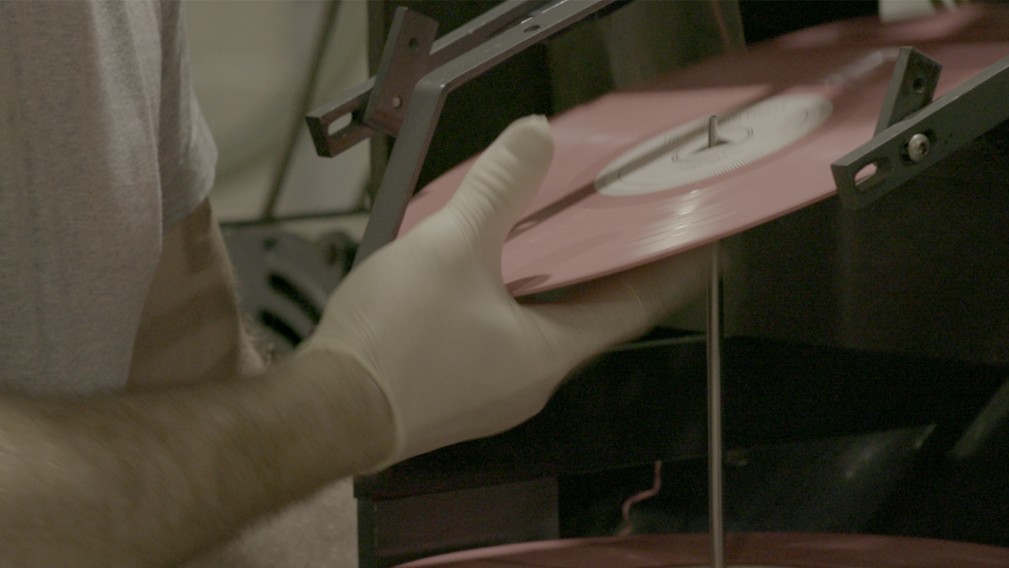Hero Images Inc / Alamy Stock Photo
"Oh FFS" is a new column picking out all the stuff you love most in life and looking at how it's destroying the planet. Enjoy!What is it? Vinyl.
What's that? Big black discs containing music, used by your dad, DJs who only play disco and people who are obsessed with letting everyone know they own loads of vinyl because "it just sounds better than anything else!"
Is it biodegradable? No.The term "vinyl" is short for polyvinyl chloride, or PVC, a common plastic polymer used in everything from credit cards to window frames. The vast majority of new plastics are made from crude oil, although a small but growing proportion are now being made by recycling old plastic. So what’s wrong with it?"When it comes to vinyl, there are environmental impacts related to anywhere energy is used," explains Andie Stephens, associate director of corporate carbon footprint measuring company Carbon Trust. "This includes the extraction of crude oil from the ground, refining it, the subsequent processing of [turning] that refined oil into PVC, then using PVC to manufacture a vinyl. The black colour comes from the addition of carbon black, which is also made from fossil fuels."Not only is vinyl made using dead pterodactyls, its production and use also creates further problems for Mother Earth. "There are also impacts from packaging, which includes chopping down trees, processing them into pulp, turning that pulp into cardboard sleeves, alongside the production of inks and printing," adds Andie. "And then there's transport and logistics between all these separate stages, plus the carbon emissions from energy use every time the record is played. Plus a comparatively tiny amount from all the studio equipment used for the recording in the first place."Okay! So vinyl and your general enjoyment of music is bad!
WATCH:
Even though PVC is technically recyclable, you shouldn't recycle it on a consumer level – i.e. in your recycling bin – because it'll likely end up at a landfill site, where it'll sit for decades. You can, however, recycle the cardboard sleeves your vinyl came in, or – if you're getting rid of a big load – send the records off to specialist vinyl recyclers, like these guys. If that's not an option, don't be disheartened: you can re-use unwanted vinyl in other ways."Vinyl records are in high demand, so you can definitely try selling them to collectors online or at a car boot sale, or just give them away to charity shops, or for free on local networks like Freecycle," suggest Andie, adding: "There are also a lot of people who have found ways to up-cycle old vinyl records into new products, from wall clocks to decorative bowls."But if you don't like clocks made from old Peter Frampton vinyl – which, yes, is perfectly understandable – and can bear to live without that little crackle you hear when you put the needle to record, here's another idea: just listen to music digitally. It sounds literally just as good as vinyl, takes up a fraction of the space and, according to Andie, the switch could be your good deed of the day."Studies have been done comparing CDs with MP3 downloads, which conclude that MP3s have a much lower carbon footprint than a physical CD," he explains. "This is because the emissions associated with the physical CD are greater than the emissions from the energy in the data centres and networks to store and download the MP3 files."Consider the fact a vinyl record's carbon footprint is much higher than that of a CD, and it's clear that your crate-digging obsession makes you a monster who doesn't care one bit about the future of this planet. But what if you can't let go? What if you need to keep buying vinyl because it's "tangible" and "real", unlike MP3s, which are "also absolutely real"? Well, you can still do your part."A DJ that wants to be more environmentally conscious should try to make sure that sound systems and lighting rigs are as energy efficient as possible and travel in an efficient vehicle," says Andie. "Also, the traditional record pressing process requires making an aluminium platter and heating the PVC in a press to form the vinyl disc, but there's an injection moulding process which uses 65 percent less energy than in the conventional record pressing process."So there you have it: if you press vinyl professionally, think about switching to that process. If you're a touring DJ, get a Prius. If you buy vinyl to play at home, stop it.@tom_usher_
What's that? Big black discs containing music, used by your dad, DJs who only play disco and people who are obsessed with letting everyone know they own loads of vinyl because "it just sounds better than anything else!"
Is it biodegradable? No.
How bad is the problem?
Advertisement
WATCH:

What's the solution?
Advertisement